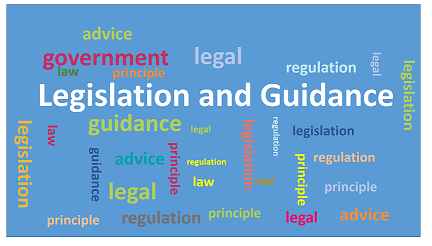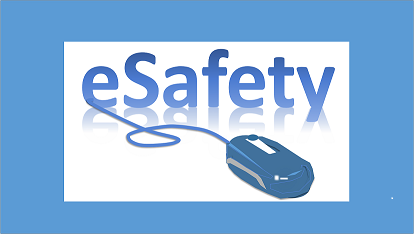Safeguarding News February 2023
Welcome to the round up of safeguarding news from February 2023.
If you haven't visited our home page recently, now might be a great time to pop over to https://www.safecic.co.uk/ with your web browser and see what's new.
From feedback received so far, the site is much easier to navigate and locating the resources you are looking for should take fewer clicks.
Our Safeguarding Rapid Review Service is incredibly popular and demand for this service is high. If you are considering reviewing your safeguarding arrangements this service could prove invaluable.
Our latest training schedule is listed below and feel free to share this email with your colleagues and they too can join our newsletter database.
To sign up simply click here.
Services Update
SAFEcic is also accepting many more bookings for its face to face safeguarding training and audit services. There is also a packed calendar of blended learning events available to book for your organisation. The courses are a very cost effective way of training your staff and volunteers.
SAFEcic Blended Learning Training Calendar
Leading on Child and Adult Safeguarding
Safeguarding Training, Leading on Child and Adult. Online course plus Zoom
Wed 19 April 2023
10:30 - 12:00 GMT
Safeguarding Training, Leading on Child and Adult. Online course plus Zoom
Thu 11 May 2023
10:30 - 12:00 GMT
Safeguarding Training, Leading on Child and Adult. Online course plus Zoom
Wed 14 June 2023
10:30 - 12:00 GMT
Safeguarding Training, Leading on Child and Adult. Online course plus Zoom
Tue 11 July 2023
10:30 - 12:00 GMT
Safeguarding Training, Leading on Child and Adult. Online course plus Zoom
Wed 9 August 2023
10:30 - 12:00 GMT
Safeguarding Training, Leading on Child and Adult. Online course plus Zoom
Wed 20 September 2023
10:30 - 12:00 GMT
Safeguarding Training, Leading on Child and Adult. Online course plus Zoom
Wed 10 October 2023
10:30 - 12:00 GMT
Safeguarding Training, Leading on Child and Adult. Online course plus Zoom
Wed 22 November 2023
10:30 - 12:00 GMT
Safeguarding Training, Leading on Child and Adult. Online course plus Zoom
Tue 12 December 2023
10:30 - 12:00 GMT
Standard Child and Adult Safeguarding
Safeguarding Training, Standard Child and Adult. Online Course plus Zoom
Tue 9 May 2023
10:30 - 12:00 GMT
Safeguarding Training, Standard Child and Adult. Online Course plus Zoom
Tue 4 July 2023
10:30 - 12:00 GMT
Safeguarding Training, Standard Child and Adult. Online Course plus Zoom
Mon 18 September 2023
10:30 - 12:00 GMT
Safeguarding Training, Standard Child and Adult. Online Course plus Zoom
Thu 30 November 2023
10:30 - 12:00 GMT
Safeguarding: Trustees’ legal responsibilities
Safeguarding: Trustees' legal responsibilities. Online Course plus Zoom
Wed 26 April 2023
10:00 - 11:30 GMT
Safeguarding: Trustees' legal responsibilities. Online Course plus Zoom
Wed 21 June 2023
10:00 - 11:30 GMT
Safeguarding: Trustees' legal responsibilities. Online Course plus Zoom
Thu 20 July 2023
10:00 - 11:30 GMT
Safeguarding: Trustees' legal responsibilities. Online Course plus Zoom
Thu 21 September 2023
10:00 - 11:30 GMT
Safeguarding: Trustees' legal responsibilities. Online Course plus Zoom
Tue 21 November 2023
10:00 - 11:30 GMT
Safer Recruitment Training. Online course plus 2 Hr Live Online training
Wed 24 May 2023
10:00 - 12:00 GMT
Safer Recruitment Training. Online course plus 2 Hr Live Online training
Wed 12 July 2023
10:00 - 12:00 GMT
Safer Recruitment Training. Online course plus 2 Hr Live Online training
Tue 19 September 2023
10:00 - 12:00 GMT
Safer Recruitment Training. Online course plus 2 Hr Live Online training
Wed 1 November 2023
10:00 - 12:00 GMT
Safer Recruitment Training. Online course plus 2 Hr Live Online training
Thu 7 December 2023
10:00 - 12:00 GMT
SAFEcic's free hub resources by setting are available through the SAFEcic.co.uk main menu. Alternately you can bookmark the links below:
Education | Dental | Charities | GP & Primary Medical Services | Fath Groups | Entertainment & Leisure | Working Overseas |
Legislation & Guidance
Legislation
England and Wales
Domestic abusers face crackdown in raft of new measures
Domestic abusers will face tags and tougher management under new measures to protect women and girls. The new proposals go further than ever before in protecting women and girls from harassment, aggression and violence, and focus on stopping domestic abuse before it takes place.
The law will be changed so that the most dangerous domestic abusers will be watched more closely. For the first time, controlling or coercive behaviour will be put on a par with physical violence, which will mean offenders sentenced to a year or more imprisonment or a suspended sentence will automatically be actively managed by the police, prison and probation services under multi-agency public protection arrangements. A range of agencies will have a legal duty to cooperate to manage the risks posed by these dangerous offenders. This will make it easier to deliver a joined-up approach to protect the public.
While this legislation is being pursued, police and the probation service will start work immediately to ensure that from now offenders sentenced to a year or more for controlling and coercive behaviour are recorded on the violent and sex offender register, so that they don’t fall through the cracks.
In addition, abusers could be fitted with a tag, prevented from going within a certain distance of a victim’s home, and made to attend a behaviour change programme, as part of a trial of domestic abuse protection notices and domestic abuse protection orders in three areas in the UK.
Also, those at risk of, or suffering from, domestic abuse will be able to receive emergency help from one of 18 Jobcentres and Jobs and Benefit offices across the UK, and a new postcode checker will tell them their nearest location to access the service.
The Ask for ANI (Action Needed Immediately) scheme is already in operation in over 5,000 pharmacies across the UK in over 88 cities, towns and villages. It is delivered in partnership with Hestia’s Safe Spaces. Anyone who is suffering from or fearful of domestic abuse can ask for ANI, and they will be guided to a safe and private space and offered support to call the police or specialist domestic abuse services
Inquiry and Review Reports

1. Angiolini Inquiry to investigate David Carrick
In the wake of the shocking crimes committed by David Carrick and acknowledged failures within the Metropolitan Police, the Home Secretary confirmed that Lady Elish Angiolini’s Inquiry will look specifically into this case. The Angiolini Inquiry was established in the wake of the murder of Sarah Everard to understand how a serving police officer was able to carry out such a horrendous crime, and a public consultation is currently open on Part 2 of this Inquiry to examine police culture, vetting processes and the safety of women.
The Terms of Reference will also look at any issues relating to Carrick’s behaviour or conduct that were known or raised by his colleagues, his abuse of police powers and intimidation of witnesses, and the impact of police treatment on his victims.
Alongside the Angiolini Inquiry, the government has commissioned His Majesty’s Inspectorate of Constabulary, Fire and Rescue Services to conduct a rapid review of all forces’ response to the inspectorate’s recent report into vetting and counter-corruption. This will make sure Chief Officers are taking the necessary action to remove those who are not fit to serve. The NPCC is asking all forces to conduct a data-washing exercise of their staff against the Police National Database to check for sexual violence and domestic abuse markers on case files.
The Home Secretary has also launched an internal review into police dismissals to make sure the system is effective at removing officers who fall short of the standards expected of them.
2. Government acts to overhaul Prevent in the fight against radicalisation
The Home Secretary has committed to delivering wholesale and rapid change across Prevent following a major independent review into the programme. The Home Secretary will deliver on all 34 recommendations made by William Shawcross, who led the Independent Review of Prevent, ensuring a robust and proportionate focus on radicalising influences rather than wider issues such as mental health.
Published on 8 February alongside the government response, the review makes clear that the threat from terrorism is becoming more complex, with the extreme right becoming an increasing concern, but Islamist terrorism remains our primary and deadliest threat.
The independent review highlights several areas where serious reform is required to ensure it is able to effectively identify and respond to the Islamist threat.
The independent review recognises the need for Prevent to better understand ideology and the individual agency of people who willingly support terrorism. The government’s response will ensure that, in the face of an enduring terrorist threat to the UK, Prevent can adequately address the dangerous ideologies which underpin it.
Prevent will focus its activity where it will have the most impact, while remaining flexible enough to respond to evolving threats and all radicalisation risks. Greater emphasis will be placed on tackling Islamist ideology, which underpins the primary terror threat to the UK.
Prevent is delivered by a multi-layered network of dedicated professionals who play a fundamental role in tackling radicalisation up and down the country. This network’s understanding of ideology will be strengthened through our expanded training programme, which aims to drive up standards and speed up referrals.
All local authorities in England and Wales will have access to expert Prevent support from the Home Office, enabling resource to be surged into areas to meet radicalisation risks.
Prevent will overhaul its training and guidance for all staff, and introduce a security threat check, to ensure all decision-making is aligned with the current threat. It will ensure a greater understanding of antisemitism in Channel cases and ensure more effective disruption of extremists targeting Jewish communities.
Prevent will work closely with Department for Levelling Up, Housing and Communities (DLUHC) and the Commission for Countering Extremism to develop new training to ensure better understanding of ideology across Prevent teams. It will also review its wider training to ensure it aligns with the findings of the independent review.
Work to implement the recommendations of the review has already started, and the majority of recommendations are expected to be actioned within 12 months. The Home Office has committed to report on implementation of the recommendations a year from now.
Research Reports, Consultations and Studies

1. Use of reasonable force and restrictive practices in schools consultation
The Department of Education are seeking to understand how reasonable force, restraint and restrictive practices are used in schools, to inform revisions to guidance.
It will inform revisions to existing guidance to ensure all schools are calm, safe and supportive environments, where staff and pupils can work in safety and are respected.
The consultation closes 11:59pm on 11 May 2023.
2. New analysis of court applications seeking to deprive children of their liberty in England and Wales
This study has exposed the extreme vulnerability of the children involved and raises further questions about the severe shortage of appropriate provision to meet their needs.
The research was carried out by Nuffield Family Justice Observatory (Nuffield FJO) and involved studying applications made to the family division of the high court to deprive children of their liberty where there were concerns about their welfare.
An application can be made to deprive a child of their liberty via the ‘inherent jurisdiction’ of the high court if a local authority has concerns about risks to their safety, or that of others, and no other suitable place – such as in a secure children’s home, or provision under the Mental Health Act – is available. Intended as a ‘last resort’ measure, in England there was a 462 per cent increase in deprivation of liberty (DoL) applications under the inherent jurisdiction between 2017/18 and 2020/21.
In July 2022, a national DoL court was launched at the Royal Courts of Justice as a 12-month pilot, to deal with all new applications to deprive children of their liberty under the inherent jurisdiction. Nuffield FJO analysed applications received in the first two months (comprising 208 children[1]) to provide a better understanding of the children involved, and the type of care and provision they need.
The vulnerability of the children is striking. Most had experienced significant adversities and trauma throughout their childhoods, including physical or sexual abuse and neglect, rejection and bereavement. In almost all cases (95.2 per cent), there were multiple concerns that led to the DoL application being issued. These included concerns about the child’s behaviour that were considered a risk to others, for example because of physical or verbal aggression (69.2 per cent); mental health or emotional difficulties (59.1 per cent); and self-harm (52.4 per cent). Some children had physical or learning disabilities (33.7 per cent), and some were at risk of criminal or sexual exploitation (33.2 per cent).
By the time the DoL application was made, restricting the child’s liberty was thought to be the only way to manage the risks they were facing – yet the vast majority of children were already well known to children’s services, having had long-term involvement with children’s social care. Only 10 children had recently come to the attention of the local authority, and only a small number of children were living at home with their parents.
Many had faced significant instability in their living arrangements. Over half (55.3 per cent) had experienced the breakdown of multiple placements, including moving between different foster care and residential placements, as well as between family members and in and out of care. Some children had moved as many as 10 times in the period leading up to the DoL application. In some cases, adoption or special guardianship arrangements had broken down due to the adoptive parents or carers being unable to manage the child’s behaviour.
In addition, the study exposes the national shortage of suitable placements available to meet children’s complex needs. In just under half of applications (45.6 per cent), children were going to be placed in unregistered[2]settings – including semi-independent accommodation, rented flats or holiday lets. Despite the prevalence of complex emotional difficulties and self-harming behaviours, very few children met the criteria for in-patient mental health treatment.
3. Safeguarding diocesan data 2019-21
New safeguarding data from a three-year period has been published by the Church of England. The data is for new concerns and allegations reported to the Church in 2019, 2020 and 2021 and relates to all its work, not just to Church Officers. The reports range from concerns about possible risk to direct allegations of abuse. Church officer is anyone appointed / elected by or on behalf of the Church to a post or role, whether they are ordained or lay, paid or unpaid.
Over the three-year period the overall number of concerns and allegations reported relating to both children and adults was reasonably similar: 2,420 in 2019, 2,245 in 2020 and 2,385 in 2021. On average just over a third related to Church Officers (which include clergy). Concerns and allegations regarding adults have increased with a reduction in the number relating to children.
Types of abuse are also analysed with a clear increase in reports of domestic abuse and a greater awareness of spiritual abuse. Referrals to statutory authorities and direct actions by the Church are also looked at.
The data is for concerns and allegations reported to the Church across all its work and activities. For example, a church member might have disclosed that their non churchgoing partner was assaulting them, or someone with convictions for sexual offences might join a congregation. The Church aspires to be a safe space where people who have experienced abuse in other parts of their life can disclose that abuse and be supported. It also seeks to minister – safely - to those who been perpetrators of abuse. In each of the three years reported here, over 60% of concerns and allegations were not about Church officers.
This data, now captured from dioceses in a more streamlined way since the 2018 self-assessment, will enable the Church to identify significant or emerging issues to inform dialogue and planning at a national and strategic level.
Resources

Long-term strategy launched to fix children’s social care
Vulnerable children will be better supported to stay with their families in safe and loving homes, as part of an overhaul of children’s social care. Backed by £200 million over the next two years, a new, ambitious and wide-ranging Children’s Social Care Implementation Strategy will transform the current care system to focus on more early support for families, reducing the need for crisis response at a later stage.
The plan responds to recommendations made by three independent reviews by Josh MacAlister, the Child Safeguarding Practice Review Panel into the tragic murders of Arthur Labinjo-Hughes and Star Hobson, and the Competition and Markets Authority (CMA). The findings revealed the current care system is often fragmented, siloed, and struggling to meet the needs of children and families across England.
Families will receive local early help and intervention with challenges such as addiction, domestic abuse or mental health, to help families to stay together where possible and overcome adversity. This will start in 12 local authorities and is backed by £45m to embed a best practice model that will then be shared more widely.
Children who grow up in loving, stable homes tend to have better outcomes, which is why the proposals put relationships at the heart of the care system and prioritise family-like placements where a child can no longer live with their parents. Kinship care, where a child is placed with a relative or close family friend, will be prioritised by simplifying the process and providing more support to extended families, such as grandparents, aunties, uncles and others. Recognising the transition within a family can be challenging for all involved, the government will also provide training and support to kinship carers.
Foster carers will also see an above-inflation increase in their allowance to help cover the increasing costs of caring for a child in their home, in recognition of the brilliant care they provide to children. This is alongside £25 million over the next two years on a recruitment and retention programme, which is the largest investment in recent history, helping to attract more people to offer a loving home for children in need. Depending on local need, foster care recruitment will focus on areas where there is a particular shortage of placements for children such as sibling groups, teenagers, unaccompanied asylum-seeking children (UASC), those that have suffered complex trauma or parent and child foster homes.
Regulators

Ofsted launches point-in-time surveys
- residential special schools
- further education colleges with residential provision
- children’s homes (includes secure children’s homes)
- fostering agencies (includes independent fostering agencies and local authority fostering agencies)
- adoption agencies (includes voluntary adoption agencies and local authority adoption agencies)
- adoption support agencies
- residential family centres
- boarding schools
Charities

Disabled Citizens' Inquiry finds UK streets stop disabled people making essential journeys
Source: Sustrans published on this website Monday 13 February 2023
The Disabled Citizens' Inquiry has found that inadequate infrastructure is unfairly discriminating against disabled people when they move around their communities. This research, led by Sustrans in partnership with Transport for All, highlights the actions the government and local authorities must take now to give disabled people the freedom to walk or wheel independently around their neighbourhoods.
Action must be taken to create places planned around people, not cars.
Coordinating the findings, Sustrans has released recommendations to make communities and neighbourhoods safer, more accessible, and more inclusive for disabled people.
These include:
- Prohibiting pavement parking to make communities more accessible.
- Creation of a long-term dedicated pavement fund to improve and maintain pavements.
- Ensuring disabled people can be within walking or wheeling distance of services and amenities by creating communities with accessible services close to where people live through better planning.
Worthy of Note

1 Updated news missing couple and new-born baby: Police found remains of a baby on 1st March 2023
Anyone who has information on the child’s whereabouts previously should call the incident room on 020 7175 0785. Alternatively, information can be reported 100 per cent anonymously to the independent charity Crimestoppers on 0800 555 111. They never ask for personal details and they do not trace your device.
2. Gabon, Jamaica and Sri Lanka have joined forces to reduce the environmental and health toll of the skin lightening industry and fight back against damaging beauty practices, launching a joint $14-million project to eliminate the use of mercury in skin lightening products.
Using cosmetics to inhibit the body’s production of melanin, leading the skin to appear lighter, is a centuries-old practice in many parts of the world that continues to take a toxic toll today.
Both men and women use skin lightening products, not only to lighten their skin but to fade freckles, blemishes, age spots and treat acne. However, consumers are often unaware that many of these products contain harmful chemicals including mercury, a toxic substance which poses risks to human health and contaminates the environment.
Skin lightening products can cause skin rashes and discolouration; scarring; nervous, digestive and immune system damage, as well as anxiety and depression. The Minamata Convention on Mercury has set a limit of 1mg/1kg (1ppm) for mercury in skin lightening products. However, a 2018 Zero Mercury Working Group and Biodiversity Research Institute test of over 300 products from 22 countries found that approximately 10 per cent of skin lightening creams exceeded this limit, with many containing as much as 100 times the authorised amount.
Led by the UN Environment Programme (UNEP), with funding from the Global Environment Facility (GEF), and executed by the World Health Organization (WHO) and Biodiversity Research Institute (BRI), the Eliminating mercury skin lightening products project will work to reduce the risk of exposure to mercury-added skin lightening products, raising awareness of the health risks associated with their use, developing model regulations to reduce their circulation, and halting production, trade and distribution across domestic and international markets.
3. Fake doctor found guilty of forgery and fraud costing the taxpayer over £1m
A bogus doctor has been convicted of forging her medical qualifications and fraudulently securing positions as a hospital psychiatrist. Zholia Alemi (DOB: 23/12/1962), of Cumbria, has been found guilty of 13 counts of fraud, two counts of forgery, three counts of deception and two counts of using material to falsify medical qualifications at Manchester Crown Court.
Over a twenty-year period, Alemi worked as a NHS psychiatrist in hospitals in England, Wales, and Scotland, earning income and benefits over £1m. She never held the medical qualifications necessary to undertake these roles.
Cumbria Police obtained evidence to prove that Alemi forged her medical qualifications at the University of Auckland to gain entry to the General Medical Council register. In reality, Alemi had dropped out of her university course after the first year. She was then able to gain employment in various hospitals based on this fraud.
Alemi joined the medical register in the UK under a section of the Medical Act which has not been used since 2003. The section allowed graduates of medical schools in certain Commonwealth countries, including New Zealand, to obtain registration based on a qualification in their originating country. As a result, Alemi did not have to sit and pass the Professional and Linguistic Assessment Board exam (Plab), an assessment of skills which is usually required of doctors who qualified abroad.
eSafety
1.This year's Safer Internet Day took place on Tuesday, 7 February 2023. Significantly, it was the 20th edition of the campaign.
Read on to find out more about practical ways in which you can get involved in the campaign, not just on Safer Internet Day but all year around. Whether you are a young person, a parent or caregiver, a teacher, educator or academic, a policymaker, or whether you represent an organisation or industry, everyone has a role to play in creating and maintaining a better online world.
And, as one Safer Internet Day draws to a close, save the date for Safer Internet Day 2024 which will take place on Tuesday, 6 February 2024.
2. Stay vigilant when selling via online marketplaces
Norfolk residents are reminded to stay vigilant when selling their belongings, particularly electronics, via online marketplaces following a series of incidents.
There have been six incidents in and around Norfolk in 2023 where the suspect has visited the address to purchase items such as games consoles and laptops which have been advertised online. They typically arrive early, prior to the agreed time, before showing an image of a fake bank transfer. The suspect then explains it may take up to 24 hours for the funds to appear in the victim’s account, provides a phone number and leaves with the item. The money is never transferred, and the suspect becomes uncontactable.
It is important to be cautious when selling high value items online. Criminals will often target people who are selling items such as mobile phones, laptops, games consoles and designer clothing. Whilst online marketplaces can be a great way to buy and sell items, we would always recommend that you take precautions before sending and receiving money from people you have connected with online.
Tips when buying and selling items online:
- Always make sure a payment has cleared before releasing to item to your buyer, whether that is in person or by post.
- If a buyer or seller makes you feel uncomfortable, do not be afraid to block their account and report them to the site you are using.
- Only give the buyer or seller minimal personal details such as your address or phone number.
- Do not use links sent by buyers to check for payment, these can look genuine but can be easily forged.
- Always use reputable payment methods, that you trust, on your own device when sending and receiving funds.
Protect yourself against fraudsters by taking the time to check that the sale feels genuine and following the precautions detailed above.
If you or a friend or family member feels they may have been a victim of fraud, you are not alone, please do not feel ashamed or embarrassed. You should contact your bank immediately and report it to Action Fraud. You can do this by calling 0300 123 2040 or via the Action Fraud website.
3. New EU-funded safety tech will help reduce viewing and demand for child sexual abuse images and videos is to be developed by a collaboration of EU and UK experts.
Launching in March, the two-year Protech project will research, design and create an app that can be installed on the devices of individuals at risk of accessing child sexual abuse material. The app will be deployed voluntarily, and users will have full knowledge of its purpose and its effect on their device.
The safety app will monitor both network traffic and images viewed on the user’s screen in real-time. After being installed, the app will run silently and will not require user interaction unless sexual images of children are detected and blocked.
Collaborators behind the €2m (£1.8m) project, which is funded by the European Commission, believe the tool could help stem the growing demand for child sexual abuse material online. It will prevent the revictimisation of child sexual abuse survivors who continue to suffer in the knowledge that others may still be able to view images and videos of them online.
The app’s uniqueness lies in its user-centred design which employs highly accurate machine learning models to provide effective intervention to individuals who fear they might offend against children. It will work in real-time to detect and halt the viewing of criminal content before it is seen by the user.
It could prove to be a vital tool for the sustainable, long-term prevention of child sexual abuse content, alongside current digital activities that tackle and remove the imagery, such as criminal investigations and the removal and hashing of images.
Reasons to Remain Vigilant in All Aspects of Safeguarding
1. Car wash owner given slavery court order
A man has been handed a court order after concerns were raised about working practices at a car wash he was running in Peterborough. Elsayed Habaka, 36, was running the hand car wash in Cobden Avenue when a member of the public called the Modern Slavery Helpline to raise concerns for the welfare of the workers.
Police officers and partner agencies visited the site to investigate and speak to Habaka about how the car wash was operating. The investigation found evidence he was employing underage people and those who did not have the right to work in the UK. As a result, officers applied for a Slavery and Trafficking Risk Order (STRO).
On 1 February at Peterborough Magistrates’ Court this order was granted for five years.
It means there are strict regulations on who Habaka, of Clarence Road, Peterborough, can employ, as well as the equipment and training they are given and wage paid. It also prevents him from paying for transport for workers to and from the UK.
Failure to comply with a STRO constitutes a criminal offence punishable by fine, imprisonment or both.
Hand car washes have been identified nationally as an industry vulnerable to modern slavery. Officers in Cambridgeshire regularly visit hand car wash sites across the county in an effort to uncover any exploitation and ensure workers are being treated appropriately.
2. Man jailed after admitting modern slavery offences involving young people
A 24-year-old man has become the first person in Suffolk to be handed a Slavery Trafficking Protection Order for exploiting vulnerable teenagers. Peter Casey, of Sterling Close in northwest London, appeared before Ipswich Crown Court on Thursday 9 February, where he was jailed for five years and three months after pleading guilty to arranging or facilitating the travel of an individual for exploitation under Section 2 of the Modern Slavery Act.
It follows an incident that occurred on 22 July 2022 when police received report that a missing teenager from Ipswich had been seen in a grey BMW car.
The vehicle was located travelling in Ipswich and stopped on Scrivener Road, where it was searched under Section 23 of the Misuse of Drugs Act. The vehicle and four occupants of the vehicle, two men – aged in their 20s and 50s, and a boy and girl, both 16-years’-old at the time – were then arrested on suspicion of being concerned in the supply of drugs and taken to Martlesham Police Investigation Centre for further searches and questioning.
An investigation was then conducted by CID officers who determined that Peter Casey had been facilitating the travel of young people around the country and forcing them to carry illegal drugs against their will. He was subsequently charged under the Modern Slavery Act.
Casey was issued with a restraining order and a Slavery Trafficking Prevention Order (STPO) - the first of its kind to be issued in Suffolk - both for a period of 12 years.
Both teenagers and the man aged in his 50s faced no further police action.
3. Paedophile who arranged to meet young girls in hotel jailed
A former carer from Cambridgeshire, who arranged to meet young girls so that he could rape them, has been jailed for more than five years. Daniel Paul Chisnall , 48, from Huntingdon, was arrested by National Crime Agency officers at a pub in the town in December last year, before he was able to check in to a nearby hotel where he planned to carry out the abuse.
Prior to his arrest, he had discussed his sexual interest in children with other paedophiles on the Kik online chat platform, WhatsApp and via email. Using a pseudonym, he messaged a user who said he had access to two girls, aged seven and 11. He spoke intimately to his online contact about the children and how we wanted to rape them when they met.
Officers searched his address following his arrest and his devices were seized. Forensic examination showed his phone contained 12 IIOC (indecent images of children) in categories A-C (A being the most severe). A further five IIOC in categories A and C had been printed out as poster-sized documents.
Chisnall, who drove a minibus in his job as a carer for vulnerable adults, was charged with one count of arranging or facilitating the commission of sexual assault of a child, one count of making IIOC (categories A-C), and one count of possessing IIOC.
He pleaded guilty at Cambridge Crown Court on 16 January and was sentenced to five years and two months imprisonment at Huntingdon Crown Court today (17 February). He has been placed on the sex offenders register for life and is also subject to an indefinite sexual harm prevention order.
4. Former Children’s Doctor who had more than a million child abuse images jailed
A former GP and paediatrician, caught with one of the largest hauls of child sexual abuse images the NCA has seen, has been jailed for over two years. David Shaw, 48, from Taunton, Somerset, used anonymisation techniques on peer to peer sharing network Freenet to download indecent images of children (IIOC) but National Crime Agency investigators were able to establish his identity.
Shaw was arrested by NCA officers at his former home in Maidstone, Kent, in February 2019. His devices were seized, and forensic examination showed 16 of them contained 1,278,256 IIOC in categories A-C (A being the most severe). The categorisation of IIOC was explained to him and Shaw told officers that all three categories would all be found on his devices.
Shaw trained at Guy’s Hospital Medical School and graduated in 2004. He was registered with the General Medical Council (GMC) and practised as a GP between 2005 and 2013, after which point his GMC membership lapsed and he no longer worked as a doctor.
When interviewed, Shaw admitted that he had been downloading IIOC since 2005 and had been expecting a visit from law enforcement at some point. He described himself as a ‘criminal’ and a ‘bad’ person and admitted to being sexually attracted to pre-pubescent girls. He added that he became depressed when he tried to cease viewing IIOC and stopped working as a GP at this point.
Shaw was charged with three counts of making and possessing indecent images of children and pleaded guilty at Maidstone Crown Court on 18 October last year. He was sentenced at the same court yesterday (22 February) to two years and two months in prison. When sentencing him, HH Judge Saxby commented that as a specialist in paediatrics, Shaw more than others would have been aware of the harm inflicted on the children in the images he downloaded. He also handed Shaw a 10-year sexual harm prevention order.
If you think you or someone you know has been a victim of child sexual abuse, you should report it to your local police on 101. Always call 999 in an emergency.
Help and advice for children, parents and carers from the NCA’s CEOP Education Team can be found on www.thinkuknow.co.uk
And Finally
Legal age of marriage in England and Wales rises to 18
Vulnerable children across England and Wales will be better protected from the damaging impact of forced marriage as the legal age of marriage rises to 18 in England and Wales.
The Marriage and Civil Partnership (Minimum Age) Act 2022, which gained Royal Assent in April last year, has come into force today (27 February). It means that 16- and 17-year-olds will no longer be allowed to marry or enter a civil partnership, even if they have parental consent.
It is now illegal and a criminal offence to exploit vulnerable children by arranging for them to marry, under any circumstances whether or not force is used. The change will crack down on forced marriages which can cause lasting damage on a child and forms part of the government’s continued commitment to tackle violence against women and girls.
Those found guilty of arranging child marriages face sentences of up to 7 years in prison.
The age of 18 is widely recognised as the age at which one becomes an adult and gains full citizenship rights.
Child marriage is often associated with domestic abuse towards girls, leaving education early, limited career opportunities, and serious physical and mental health problems. The change honours the government’s commitment to the pledge made to the United Nations to end child marriage by 2030.
Previously forced marriage was only an offence if the person uses a type of coercion, for example threats, to cause someone to marry. It is now an offence to cause a child under the age of 18 to enter a marriage in any circumstances, without the need to prove that a form of coercion was used. This includes non-legally binding ‘traditional’ ceremonies which would still be viewed as marriages by the parties and their families.
In 2021 the government’s Forced Marriage Unit provided advice or support in 118 cases involving victims below 18 years of age. The courts have also issued 3,343 Forced Marriage Protection Orders between their introduction in 2008 and September 2022 which prevents someone from using threats, violence or emotional abuse as a way to force a person into marriage.
The government’s statutory guidance and multi-agency practice guidelines on forced marriage have also been updated to reflect this legislation.






